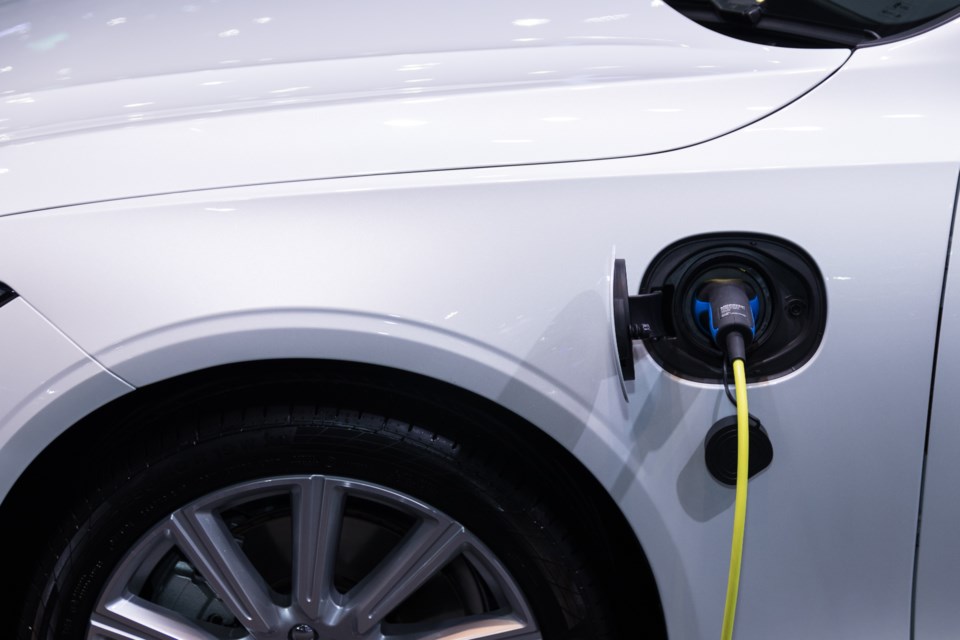BradfordToday and InnisfilToday welcome letters to the editor at [email protected] or via the website. Please include your full name, daytime phone number and address (for verification of authorship, not publication). The following is in response to a letter about used electric vehicles, published May 12.
I have been driving my Model Y Long Range since March 2022 and, previous to that, a BMW i3 electric vehicle (EV) powertrain from 2018.
The benefits are undeniable, which include the pleasure of driving, massive savings on fuel and driving the safest, smartest vehicle on the road for my family and me. We plan to keep our Model Y for eight years total, which means another six.
The cost of a replacement for a new battery would probably be in the range you mentioned, but that wouldn’t apply to most people.
When you describe purchasing an EV that might need a new battery in two or three years, you might be referring to those articles about those who have faced that cost. When you look deeper into the story, we often find that those people were using the car to the extreme, which included using it as a taxi/Uber with more than 10 hours of driving it daily and likely used the Level 3/superchargers (400 to 800 volts and up to 200-kilowatt-hour speeds) for most of the top-ups.
The vast majority of us would be charging at a more calm rate at home or at public destination chargers (Level 1, 120 volts, two kWh, or Level 2, 240 volts, 32 amps, 19 kWh). I’ve met plenty of taxi owners with 800,000 kilometres or more on their vehicles and who often are on their second or third engine, for example, not to mention the other replacements along the way for brakes, radiators, transmission and so on (plus the massive gasoline amounts used per year).
Norway is the leader in EV adoption as its government policies set that in motion years ago by taxing gasoline cars heavily (and their fuel) while offering no tax on EV vehicles. (No subsidies needed.)
Norway is typically a colder country than Canada, also, especially colder than southern Ontario, where most of us live. They have mass adoption of electric cargo trucks, vans and buses.
Come to think of it, Moscow, Russia, has a fully electric bus system that works fine, also. With a decade of these policies ongoing, they have also developed evolving repair garages that can more easily repair bad cells in batteries or even easily replace battery packs with brand names or generics that cost less and less as time goes by.
Canada will get there, but don’t be discouraged by the headlines that sensationalize a story to grab readers rather than give them full context of what really happened.
By the way, extended warranties are usually available on any car either by dealer or privately if it’s still a concern. One more thing to think about is that Tesla has been doing EVs since 2012 in terms of mass production and has a proven track record and network of chargers, sales and service. Other companies like Chevy (Bolt) and Hyundai, which are relatively new to the game, have had far more battery recalls and issues.
There are many ‘million-miler’ Model Ss and Xs out there and, in 2019, when asked, Elon Musk suggested that a long-range Model 3 or Y, when used normally, would have a battery lifetime of about 465,000 miles (748,000 kilometres). Even if you just drove around town and got only 300-kilometre range on a high-mileage Tesla, for example, that originally had 500- to 600-kilometre range, you’d still be doing fine, in my opinion.
A nine-year-old Model S from 2015 with about 120,000 kilometres on it typically sells for about $30,000, and so there is a market for used EVs, but I would definitely want to know how it was used before buying it and have it checked out, just as is advisable for a nine-year-old used gasoline car; most people would get it checked by their mechanic before buying.
Here is a video from Bjørn Nyland in Norway with a repair garage, Elbilmek, which works on EVs and repairs batteries. This type of garage will become more common here, as well, in time.
Lastly, I’d like to point out that there are also companies making cars that are capable of fast-swapping batteries, like NIO. This way, you’d have a membership with them and always swap out for a fully charged working battery whenever needed.
My point is that the future is friendly with regards to EVs as options unfold.
Jeff Hiemstra
Barrie
